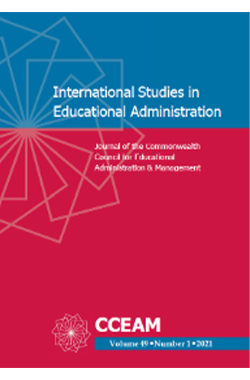Schooling and Education in Times of the COVID-19 Pandemic
Autor(en)
Herausgeber
Erscheinungsjahr
Titel
Untertitel
Erschienen in
Form
Verlag
Abstract (short)
The crisis caused by the COVID-19 virus has far-reaching effects in nearly all social areas, including education. Indeed, schools were closed in March 2020 in nearly all countries in the world. In Germany, Austria and Switzerland, they were closed in mid-March. We initiated the school barometer at this time and started to collect data one week later. We published the first findings at the end of March with regular updates on a weekly basis. An open access book publication was available on the 24th of April, and the first peer-reviewed open access articles at the beginning of and mid-June. For this paper we are reporting general observations from the school barometer online survey responses collected in Austria Germany and Switzerland with around 24,000 students, parents, school staff, school leaders, school authority and system support personnel. Findings reported here include the following. The COVID-19 crisis poses a great challenge for all actors in the education and school context. There is a high level of appreciation and recognition by parents regarding schools as an institution and the work of teachers. The field of digitalisation is experiencing an enormous upswing. Learning with and through technology, as well as about technology, is in high demand. Requirements for distance learning and digitalisation are an opportunity for differentiation in teaching and learning. Blended learning concepts offer advantages for all actors in dealing with the pandemic in the longer term (and beyond). Overall, it can be assumed that children could drift further apart in their development. In other words, differences in quality will not only become more apparent, but they will increase over time, at all levels/among all actors: among students, the teachers or in the classroom and in schools as a whole. We argue that learning is more than simply acquiring information and learning lessons. It is also about motivational and, above all, emotional aspects. Looking ahead, we promote a specific strategy in advancing the school system, that is, the ISO strategy: innovate, sustain, optimise.
